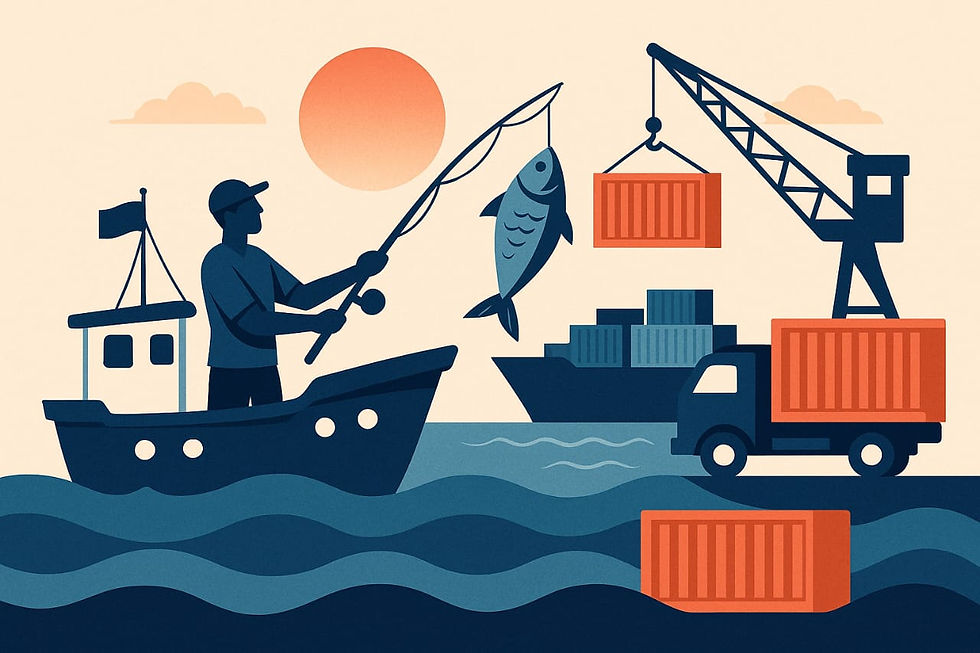Catch and Exports from the fishery industry have recovered from sharp reductions in 2024.
- Ibrahim Athif Shakoor

- Aug 4
- 2 min read
Updated: Aug 7

The landings of the country in 2024, and consequently exports offered dismal tidings on the major primary industry of the country in 2024. Concerns were raised by both the fishing community and the private industry that processed and exported harvest of the fishermen.
While total landing figures for 2024 have still not been released, figures published by MMA in their monthly bulletin shows the steep level of decline of the fishery sector in 2024. (Table 1)
In 2024 landings that had been, consistently stable around 85 thousand mts on a 5-year (2019-2023), sharply to 37k mts.

Following, from the weakened landings, exports too dropped from a 5-year average of 71 thousand mts to an alarming 39 thousand mts in 2024, a steep drop of 41%.

The decline in landings leading to sharp reduction of the income of fisherfolk impacted the lived life of fisherfolk and their families. At the same time the consequent decline in exports impacted the GDP figures and foreign currency earnings in 2024.
However, it is gratifying to note that fishery harvest and exports have recovered in 2025. By May of 2025 total fish landings have increased by more than 8,000 mts and export volumes have increased by more that 15,000 mts in the same period last year.

The Maldives is an island nation of fisherfolk, all of whom grow up by the sea. The bounty of the seas feed our people and have been the main source of foreign currency earnings from our very early beginnings. Fishery has been the principal source of protein for our people from ancient times and even though imported poultry and other land-based protein sources play an increasing role in the diet of our people, protein derived from the bounties of the sea, is still our main source of sustenance.
The feedback loop from the fishery industry to the larger economy is almost unique in the way it is constituted in our economy. The fishermen are local, the boat owners are local and the companies that process fish and export are local. And while a high percentage of the fish processing staff are today expatriate labor (accounted for in the Secondary Sector), the earnings of the industry are, by and large still, retained within the economy and distributed here.
The feedback loop from the fishery industry to the larger economy is almost unique in the way it is constituted in our economy. The fishermen are local, the boat owners are local and the companies that process fish and export are local.
Therefore, statistics showing that fishery harvest has recovered is glad tidings to the nation and the people as a whole. The significance of the improvement in fishery landings leading to better export earnings, go beyond the contribution to the income of fisherfolk, GDP contributions and foreign currency earnings.
The proximity and therefore the affinity to the sea, marine landings being our main source of protein, and fishery being the main primary industry of the country, will not change in our geography.
Maldives Economy Today [Vol 1 - Issue 4] July 2025




Comments